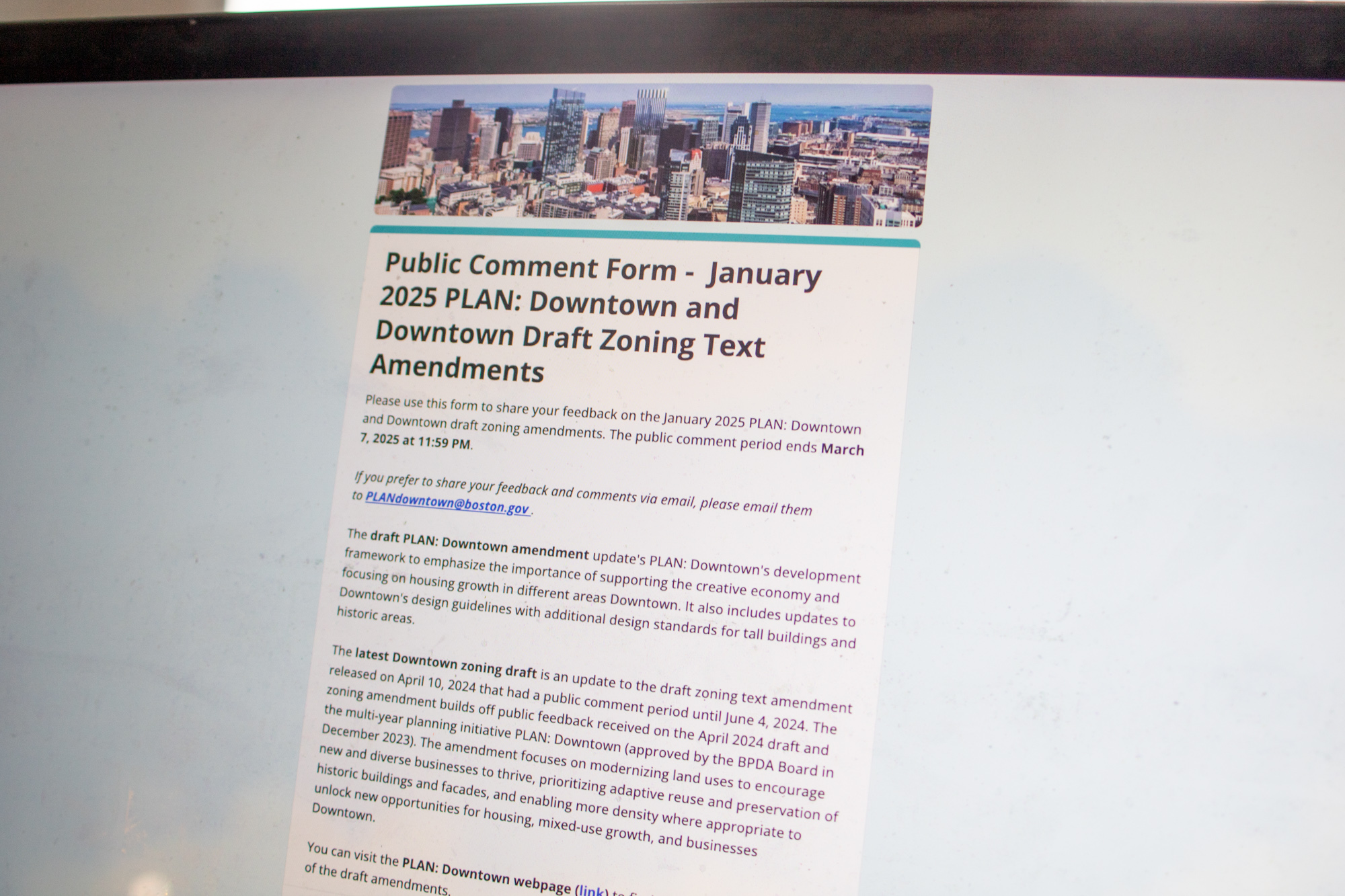After the City of Boston Planning Department announced an updated draft of its new zoning amendments Jan. 15, Boston residents and organizations urged for an extended public comment period and voiced concerns.

The amendments are part of the City’s PLAN: Downtown initiative, a six-year process to revitalize Downtown Boston and enable more growth, said Andrew Nahmias, senior urban planner for the Boston Planning & Development Agency.
Nahmias said the current downtown zoning ordinance is “severely outdated,” with limitations on the height of buildings and density of certain areas.
The City intends to minimize these regulations, which would help small businesses flourish, Nahmias said.
Additionally, the City plans on introducing new zoning districts to maximize opportunities for new residential projects, Nahmias said.
“The zoning is really striving to create new pathways for more housing, and really try and leverage the fact that downtown has such great transit access,” Nahmias said.
However, the updated plans raised significant concern within the Boston community.
In a letter to Chief of Planning Kairos Shen, Boston City Councilor Ed Flynn wrote that at the Jan. 15 information session — attended by over 230 people — “there was overwhelming opposition from residents to the proposed amendments.”
Flynn also wrote that the PLAN: Downtown Advisory Group expressed frustration over the departure from the previous iteration of the plan.
Rishi Shukla, co-founder of the Downtown Boston Neighborhood Association and member of the PLAN: Downtown Advisory Group, said the group was “shocked and disappointed” the City made decisions to rezone “without feedback from the community.”
“A significant amount of time and energy [was invested] into getting the plan done over six years,” Shukla said. “To have the City renege on its promises and its scope of work is frankly off-putting and also concerning, because that’s precisely not how city government is supposed to operate.”
The advisory group was especially concerned about the latest plan, which proposed 500-foot towers from Washington Street’s western corner to Arlington Street — an idea never discussed with the group, Shukla said.
Shukla also said he has doubts regarding the City’s claims the plans will lead to affordable housing. With construction costs around $1500 per square foot, Shukla said units would likely sell for about $2,000 per square foot, “which is obviously not affordable housing.”
To address these concerns, the advisory group met with Mayor Wu, the chief of planning and other city officials involved, requesting the public comment period be extended to allow for more community engagement, Shukla said.
The Partnership of Historic Bostons, an organization that hosts programs educating people on Boston’s history, also took action, sending an email Jan. 31 to approximately 4,000 people encouraging people to email city councilors in opposition and urge them to extend the public comment period.
Since then, the public comment deadline has been extended from Feb. 5 to March 7.
Sarah Stewart, vice president of the Partnership of Historic Bostons, said she is primarily worried these developments will desecrate the “historical character” of the area.
“There’s an idea that history is a nice add-on to have but not essential. We think this is not the case for Boston,” Stewart said. “It’s the reason people come. They don’t visit Boston for the food, or for the beauty or the scenery. They come because of the history.”
Stewart also said the decision would be “economically foolish” from a tourism standpoint, especially considering the 250th anniversary of the American Revolution is approaching.
Now that the deadline has been extended, Stewart said the Partnership of Historic Bostons will continue this advocacy.
“We’re delighted that the deadline has been extended, but the fundamental issues remain,” Stewart said. “History is a delicate thing and easily destroyed. All it takes is too much concrete or just knocking down a building.”


















































































































